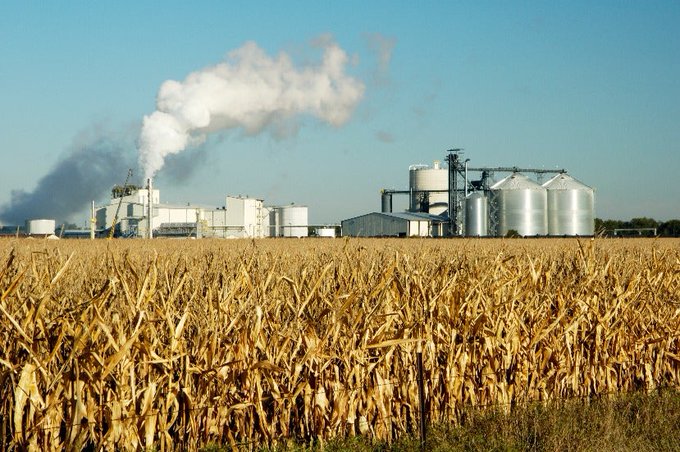|
Getting your Trinity Audio player ready...
|
A study released Feb. 14 by the Proceedings of the National Academy of Sciences claims that ethanol is likely a bigger contributor to global warming than gasoline, Reuters reported.
The study contradicts previous findings by the US Department of Agriculture (USDA) showing that ethanol and other biofuels are green.
“Corn ethanol is not a climate-friendly fuel,” said Dr. Tyler Lark, assistant scientist at the University of Wisconsin-Madison Center for Sustainability and the Global Environment and lead author of the study.
The research was funded in part by the National Wildlife Federation and the US Department of Energy. It said ethanol is likely at least 24% more carbon-intensive than gasoline because of emissions resulting from land-use changes to grow corn, as well as processing and combustion, Reuters said.
The Renewable Fuels Association said the study was completely fictional and erroneous noting that the authors used “worst-case assumptions and cherry-picked data.”
As part of the Renewable Fuel Standard (RFS) oil refiners are required to mix 15 billion gallons of corn-based ethanol into gasoline per year. The RFS was intended to reduce emissions, support farmers, and reduce US dependence on oil imports.
Corn cultivation grew 8.7% and expanded into 6.9 million additional acres of land between 2008 and 2016, the study found. That led to widespread changes in land use, the study found. Tilling fields release carbon stored in the soil, while other farming activities, like applying nitrogen fertilizers, also produce emissions, Reuters reported.
A 2019 USDA study found that ethanol’s carbon intensity was 39% lower than gasoline, in part because of carbon sequestration associated with planting new cropland.
Lark said research underestimated the emissions impact of land conversion.
The USDA did not respond to Reuters for a request for comment.
Source: World Grain






